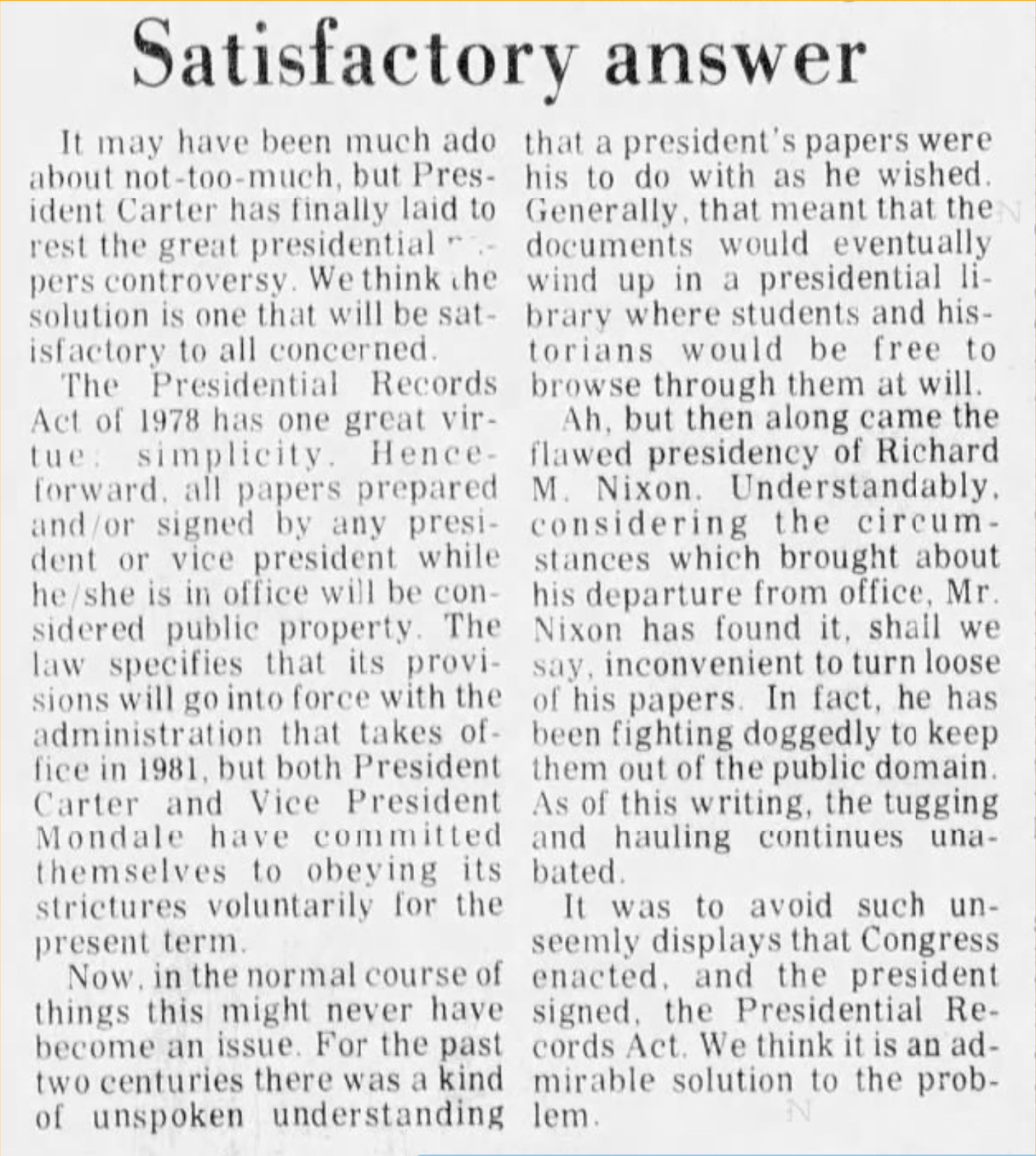The diehard defenders of former President Trump have been insisting this week that the Presidential Records Act means that he had the right to keep whatever materials he wanted from his presidency.
The National Archives has shot this stupidity down, pointing to the clear language of the law and speaking with the slow tones of an exasperated parent.
One would imagine that NARA’s close reading of the letter of the law would satisfy those who fancy themselves faithful adherents of textualism, but if they’d like, we could also explore the original intent of those who passed the law?
The Presidential Records Act of 1978 was one of several reforms passed by Congress in the wake of the Watergate scandal and Nixon’s resignation, in an effort to pare back what Arthur Schlesinger Jr. called “the imperial presidency.”
According to the chairman of the House committee that drafted the act, it represented “an important turning point in preserving rightfully public records for the public’s use and benefit.”
The media certainly understood it that way, with national newspapers all running some version of this theme: “Papers of President Become Public Property” (Washington Post), “President’s Papers Public’s Property” (Newsday) or “President’s Papers Are Now Yours” (Christian Science Monitor).
Local papers sent the same message, as seen in this editorial in the Corpus Christi Caller-Times:
As the paper notes, the law’s strength was — and is — its “simplicity.”
People trying to contort themselves about the meaning of the PRA, turning it from a forceful rejection of the idea that a president could do whatever he wanted with his papers, spinning it completely backwards into a defense of that idea, is just ludicrous.
—




